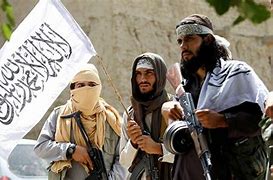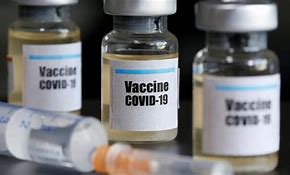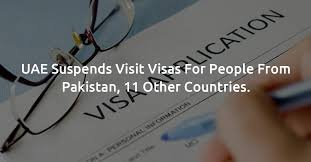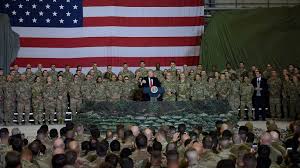Feature
Toll in Pakistan school massacre climbs to 148

Islamabad: Children were the majority of the 148 people killed Tuesday in a Taliban attack on a school run by the Pakistani army in the northwestern city of Peshawar, near the border with Afghanistan.
The fatalities included 132 students and nine school employees, the military’s director of public information, Gen. Asim Bajwa, told a press conference.
Another 122 students were wounded, as well as nine of the soldiers who retook the school from the insurgents.
More than 900 people were inside the compound at the start of the assault, Bajwa said.
Seven Taliban fighers dressed in army uniforms entered the school through a back door shortly before midday, police spokesperson Seid Wali said.
The attackers hurled grenades and fired burst of gunfire as they went from classroom to classroom, Wali added.
One of the students, a 14-year-old boy, told The Express Tribune that two men burst into his classroom and began shooting indiscriminately.
The Pakistani army launched an operation to liberate the school, which serves grades 1-10, but progress was slow as the troops had to contend with explosives planted inside by the attackers.
Soldiers eliminated the last of the insurgents by 6:20 p.m., authorities said.
Television stations broadcast scenes of chaos around the school and the sounds of explosions and gunfire were clearly audible in the background.
The attackers never planned to take hostages and were simply out to kill as many people as possible, Gen. Bajwa said.
After securing the school, the military embarked on a anti-insurgent sweep across Peshawar and the surrounding province of Khyber Pakhtunkhwa.
Pakistan’s main Taliban group, known as the TTP, claimed responsibility for the attack and said it was in reprisal for the what the militants claimed was the targeting of their families by the military.
A counterinsurgency operation six months ago in the Khyber and North Waziristan areas left more than 1,100 insurgents dead, according to Pakistan’s army.
Prime Minister Nawaz Sharif called the assault on the school “a national crisis”, declared three days of mourning and convened a meeting Wednesday in Peshawar with leaders of all parties represented in the Pakistani parliament.
US President condemned the attack, as did Indian Prime Minister Narendra Modi and Afghanistan’s Ashraf Ghani.
Malala Yousafzai, the Pakistani girl who was shot by the Taliban in 2012 for her outspoken advocacy on behalf of girls’ education and went on to share this year’s Nobel Peace Prize, said she was “heartbroken by this senseless and coldblooded act of terror in Peshawar.”
Entertainment
Meghalaya Reserves Legalized Gambling and Sports Betting for Tourists

The State Scores Extra High on Gaming-Friendly Industry Index
Meghalaya scored 92.85 out of 100 possible points in a Gaming Industry Index and proved to be India’s most gaming-friendly state following its recent profound legislation changes over the field allowing land-based and online gaming, including games of chance, under a licensing regime.
The index by the UK India Business Council (UKIBC) uses a scale of 0 to 100 to measure the level of legalisation on gambling and betting achieved by a state based on the scores over a set of seven different games – lottery, horse racing, betting on sports, poker, rummy, casino and fantasy sports
Starting from February last year, Meghalaya became the third state in India’s northeast to legalise gambling and betting after Sikkim and Nagaland. After consultations with the UKIBC, the state proceeded with the adoption of the Meghalaya Regulation of Gaming Act, 2021 and the nullification of the Meghalaya Prevention of Gambling Act, 1970. Subsequently in December, the Meghalaya Regulation of Gaming Rules, 2021 were notified and came into force.
All for the Tourists
The move to legalise and license various forms of offline and online betting and gambling in Meghalaya is aimed at boosting tourism and creating jobs, and altogether raising taxation revenues for the northeastern state. At the same time, the opportunities to bet and gamble legally will be reserved only for tourists and visitors.
“We came out with a Gaming Act and subsequently framed the Regulation of Gaming Rules, 2021. The government will accordingly issue licenses to operate games of skill and chance, both online and offline,” said James P. K. Sangma, Meghalaya State Law and Taxation Minister speaking in the capital city of Shillong. “But the legalized gambling and gaming will only be for tourists and not residents of Meghalaya,” he continued.
To be allowed to play, tourists and people visiting the state for work or business purposes will have to prove their non-resident status by presenting appropriate documents, in a process similar to a bank KYC (Know Your Customer) procedure.
Meghalaya Reaches Out to a Vast Market
With 140 millions of people in India estimated to bet regularly on sports, and a total of 370 million desi bettors around prominent sporting events, as per data from one of the latest reports by Esse N Videri, Meghalaya is set to reach out and take a piece of a vast market.
Estimates on the financial value of India’s sports betting market, combined across all types of offline channels and online sports and cricket predictions and betting platforms, speak about amounts between $130 and $150 billion (roughly between ₹9.7 and ₹11.5 lakh crore).
Andhra Pradesh, Telangana and Delhi are shown to deliver the highest number of bettors and Meghalaya can count on substantial tourists flow from their betting circles. The sports betting communities of Karnataka, Maharashtra, Uttar Pradesh and Haryana are also not to be underestimated.
Among the sports, cricket is most popular, registering 68 percent of the total bet count analyzed by Esse N Videri. Football takes second position with 11 percent of the bets, followed by betting on FIFA at 7 percent and on eCricket at 5 percent. The last position in the Top 5 of popular sports for betting in India is taken by tennis with 3 percent of the bet count.
Local Citizens will Still have Their Teer Betting
Meghalaya residents will still be permitted to participate in teer betting over arrow-shooting results. Teer is a traditional method of gambling, somewhat similar to a lottery draw, and held under the rules of the Meghalaya Regulation of the Game of Arrow Shooting and the Sale of Teer Tickets Act, 2018.
Teer includes bettors wagering on the number of arrows that reach the target which is placed about 50 meters away from a team of 20 archers positioned in a semicircle.
The archers shoot volleys of arrows at the target for ten minutes, and players place their bets choosing a number between 0 and 99 trying to guess the last two digits of the number of arrows that successfully pierce the target.
If, for example, the number of hits is 256, anyone who has bet on 56 wins an amount eight times bigger than their wager.























